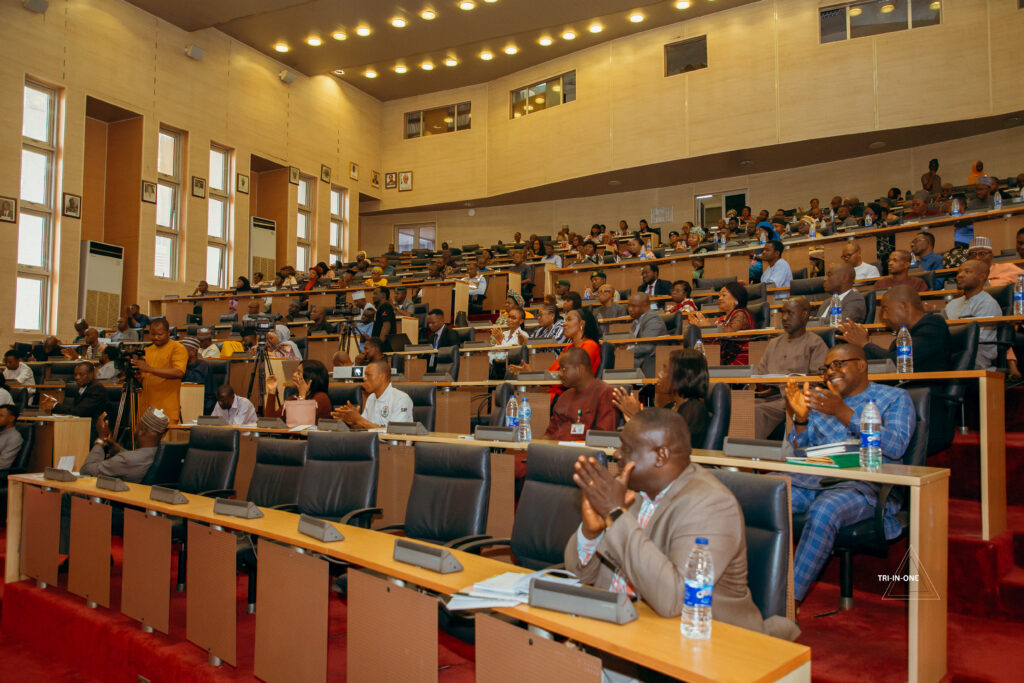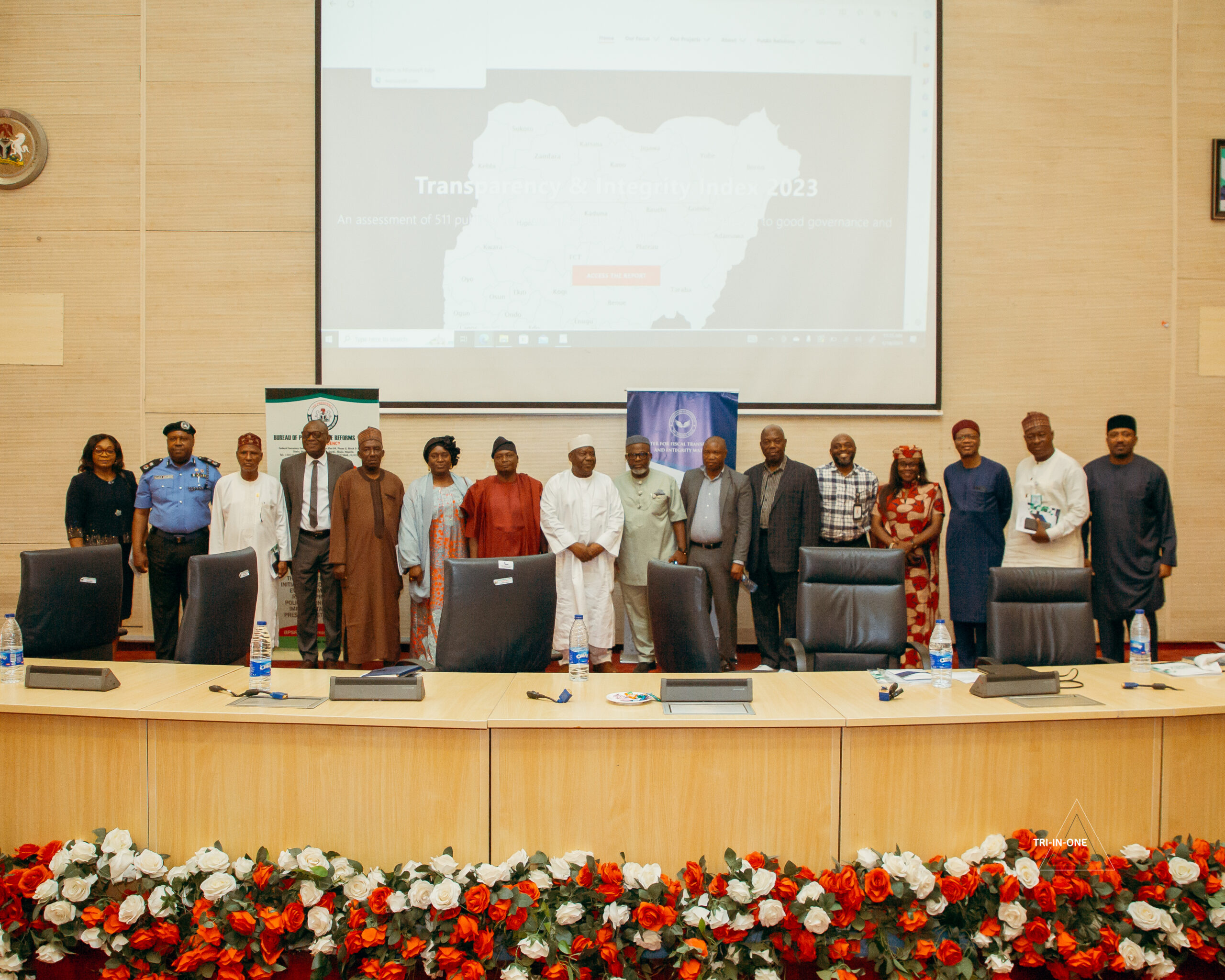As part of the ongoing efforts to promote access to information and citizens’ engagement by encouraging public institutions to proactively disclose certain information as enabled by laws, The Center for Fiscal Transparency and Public Integrity (CeFTPI) in collaboration with the Bureau of Public Service Reforms has presented the Transparency and Integrity Index (TII) methodology handbook for 2024 assessment.

The methodology handbook provides a detailed explanation of the variables and the scoring criteria for the evaluation and assessment of openeness and transparency of public institutions. For this year’s assessment, the Center identified 31 sub-variables organized around 5 thematic areas (variables) namely: Financials, Procurement, Human Resources, Control of Corruption and Citizens Engagement.
Speaking at the presentation, the Program Officer of the Center, Tamara Berepubo explained that the Index developed in 2021, and supported by the MacArthur Foundation, serves as a means of gauging the transparency of public institutions while also enhancing the effectiveness of existing accountability measures. She stressed that transparency is essential for good governance as it guarantees that the public can access and understand decision-making processes and outcomes thereby enhancing accountability, trust, and citizen participation in governance.
The Center’s Program Officer stated that the variables were carefully designed to align with applicable laws and statutory instruments, ensuring a robust and comprehensive assessment process. She explained that the guiding principles for the variables are drawn from a range of legal frameworks, including the Constitution of the Federal Republic of Nigeria 1999 (as amended); the Public Procurement Act 2007 (as amended), the Freedom of Information Act 2011; the Fiscal Responsibility Act, 2007; Executive Order No. 001, 2017; and Federal Character Principles.
“We also derive inspiration from national strategies such as the National Anti-Corruption Strategy (2017-2021) and (2022-2026) and the States Fiscal Transparency, Accountability and Sustainability Framework; Discrimination Against Persons with Disabilities (Prohibition) Act 2018; Sustainability Framework amongst others.
“It is worthy of note that our guiding principles extend beyond national borders. We draw from international conventions and treaties to which Nigeria is a signatory, such as the United Nations Convention Against Corruption (UNCAC) 2004, the Open Government Partnership (OGP); the African Union Convention on Preventing and Combating Corruption (AUCPCC)2006; the Sustainable Development Goals (SDGs) 10 and 16 among others” she stated.
In his keynote address, the Secretary to the Government of the Federation SGF, Dr. George Akume called on stakeholders to collaborate and commit to the assessment, adding that the Index presents an opportunity for “a new era of governance characterized by integrity, transparency, and citizen-centricity.”
Represented by the Director of ICT, Wase Isah Francis, the SGF noted that trust in public institutions is paramount for development, and urged public institutions to take proactive measures to ensure the highest standards of accountability and integrity.
On his part, the Director General of the BPSR, Mr. Dasuki Arabi said that the Index is a clarion call on public institutions to strengthen their operations from within by adopting best practices and embracing innovation that paves the way for a more transparent and responsive public sector.

